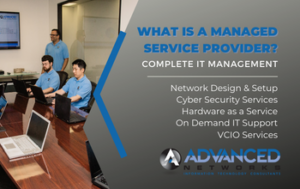IT consulting professionals in Los Angeles strongly advise businesses to keep passwords at their most efficient. This means a few things, one of the most important is that associated password management best practices are necessarily going to shift. What used to work won’t be as effective today, and what works today will change tomorrow.
Predicting the future is speculative at best, outright ridiculous at worst–just look at what people thought the 21st century would be like in the 1930s. So we won’t predict where password protocols will go, but briefly we’ll cover what today’s best practices in password management are. They include:
Following New NIST Standards
The National Institute of Science and Technology has developed standards representing a general rule of thumb for best practices in password creation. Keep your finger on the pulse of NIST, and you’ll always be apprised of the latest in password changes.
Long Passwords Are Still Superior
The longer the password, the better–but that’s easier to conceive than achieve, especially considering attempt limitations and typos. Try to develop long passwords, but try to ensure they’re usable.
Consider the Value of MFA Solutions
Multi-Factor Authentication, or MFA, outpaces hackers, as they generally aren’t able to secure multiple “proofs” of identity without authorization. Basically, you type in a password and get a code prompt where, after answering a text, you have the code. That’s MFA.
Assure Passwords Aren’t Overly Complex to Use
IT consulting experts in Los Angeles advise whatever passwords you come up with are easy to use. It would be better to quote a popular phrase of dialogue including funky punctuation and numbers than some random conglomeration of hard-to-remember letters and symbols.
Limit Password Attempts, and Don’t Give Any Hints
Password attempt limits help keep hackers from brute-force hack attacks that simply cycle through varying number, letter, and symbol combinations.
Create Good Long-Term Passwords, Don’t Keep Developing New Ones
When you continuously create new passwords, you continuously compromise operations. Each time you change, you’re less likely to come up with superior passwords. It’s better to design a reliable long password from the start.
Make Sure Passwords Are Properly Designed and Managed
Our IT consulting team in Los Angeles can help you follow NIST password protocols. Long passwords are still worthwhile, MFA makes a lot of sense, continuous password reset is actually less secure than solid design from the start, passwords shouldn’t be overly complex, and attempts should be limited. Contact us at Advanced Networks to learn more about passwords and associated best practices as they shift.




